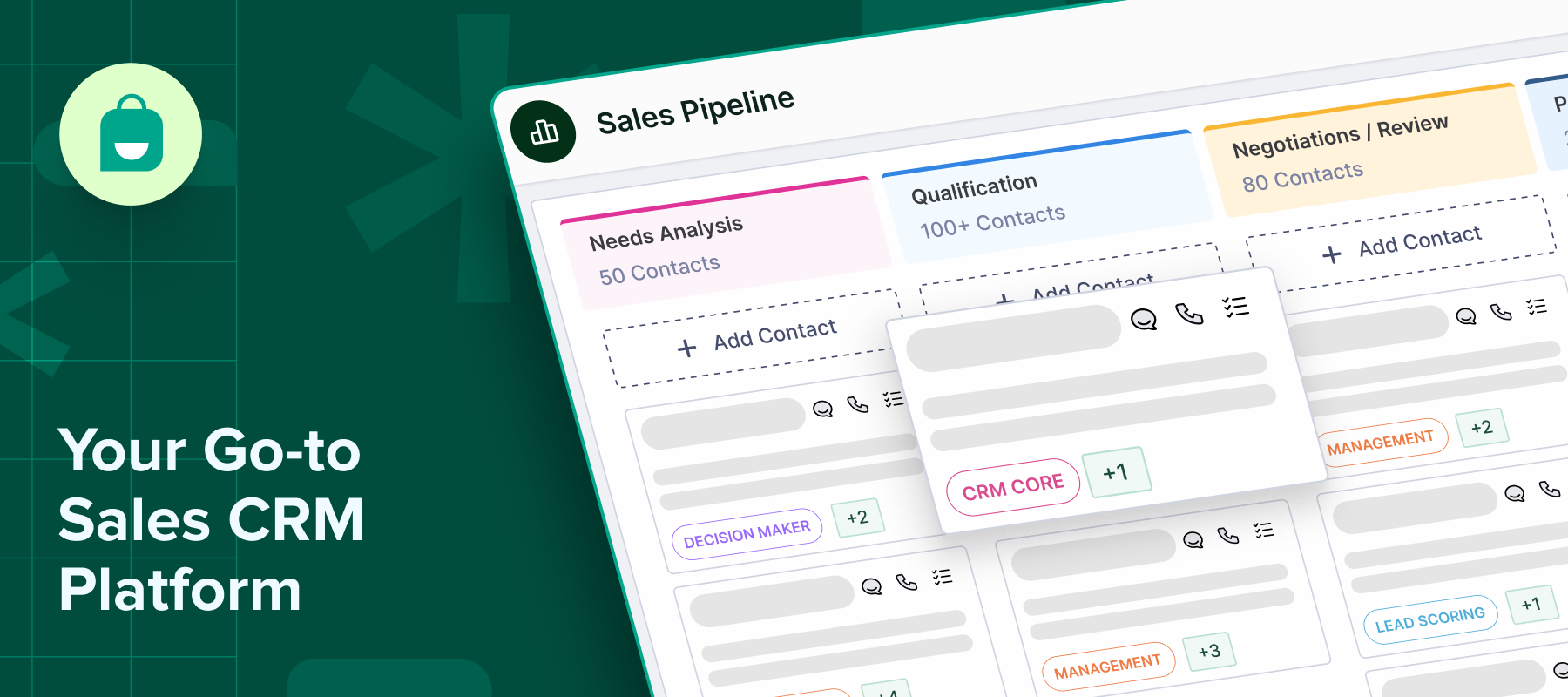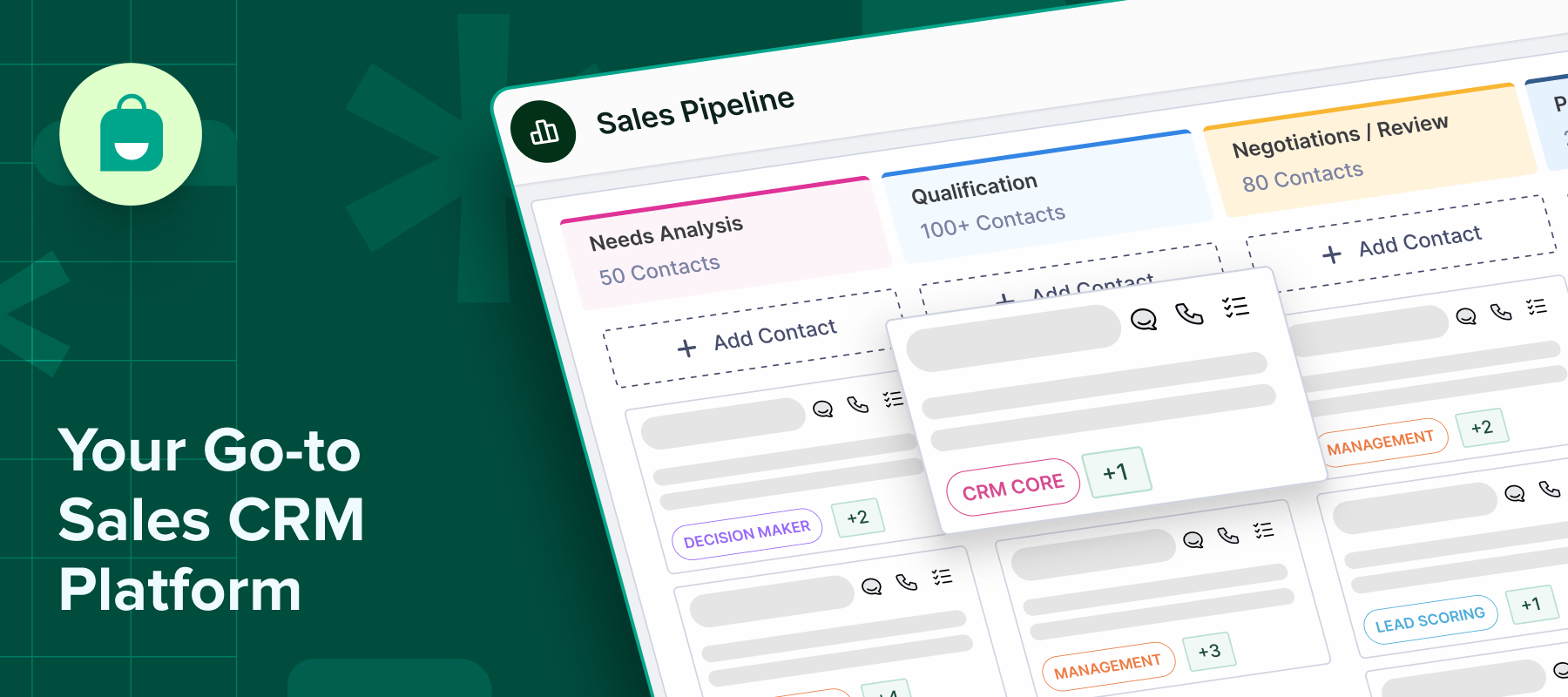Sales is a demanding and fast-paced field, with reps constantly having to manage leads, meetings, and follow-ups, with a lot at stake. In such chaos, it’s easy for valuable opportunities to slip past you without a clear system to track interactions or manage data.
This is exactly where a CRM tool can make a huge difference by helping sales teams stay organized, focused, and proactive.
In this article, we will have a look at why sales CRM is an absolute necessity for sales teams.
What is a CRM, and what does it do?
A Customer Relationship Management (CRM) system is a tool that allows businesses to manage and analyze customer interactions throughout the sales pipeline. A CRM acts as a central hub from which sales information can track leads, manage deals, automate routine tasks, and store customer contact information.
With a good CRM system in place, customers can:
-Track and manage leads at every stage of the sales funnel.
-Automate routine repetitive tasks like reminders, follow-ups, and data entry.
-Centralize customer information for better collaboration
-Access real-time reports and dashboards
-Personalize outreach based on customer data
7 reasons why CRM is important for sales teams
Now let’s go through some of the major reasons why CRM is a necessity for sales teams:
1. Organized lead management
A CRM helps sales teams keep all leads in one place, ensuring that the sales team can track, engage, and even convert prospects without missing any opportunity. With features like auto-assignment, leads can be assigned to the right representative seamlessly, reducing delays and improving response time.
2. Improved communication and follow-ups
With the ability to track every interaction from calls to emails to messages from a single platform, teams are better equipped to deliver consistent communication. They can set follow-up reminders and next steps to ensure minimal slip-ups or delays regarding outreach.
3. Faster deal closures
CRM provides clear and comprehensive visibility on every deal and its position in the pipeline. Sales teams can use this to prioritize hotter leads and improve the chance of closing deals and converting prospects.
4. Better team collaboration
A lot of sales teams struggle as a result of working in silos. CRMs solve this by allowing team members to share tasks, notes, and updates, with real-time visibility across the board. All members can thus stay aligned and collaborate to create positive growth.
5. Sales performance tracking
Having a good sales CRM also lets you keep track of key metrics like response time, conversion, deal size, etc. These insights can help you quickly spot bottlenecks and make smart, data-backed decisions.
6. Time savings through automation
Another key reason that makes CRM a necessity for any sales team is the significant time savings it can fetch. Routine administrative tasks can simply be run on autopilot, allowing your team more time to do what they do best, i.e., sell.
7. Integration with other tools
Modern CRMs connect well with important tools like WhatsApp, email platforms, calendars, payment gateways, customer support tools, and more, making for a more unified system that ensures streamlined communication, better schedule management, and improved productivity.
Examples of effective CRM use
Here are two examples of when a CRM like Interakt can help with sales:
1. E-Commerce brand sales team
An e-commerce brand team can stand to benefit a lot from effectively leveraging a CRM. For instance, abandoned cart recovery can be a hassle without automation or adequate insights into customer interests and behavior.
With a CRM in place, the team can send automated follow-ups with tailored offers to customers based on their browsing behavior. This not only improves customer engagement but also helps the brand seamlessly recover sales that would have otherwise been lost.
2. Real estate sales team
A real estate agency can find itself handling multiple client interactions related to scheduling site visits, property inquiries, etc., on a day-to-day basis.
The sales team can leverage a good CRM to automate follow-ups, centralize the database of buyer/renter interests, prioritize high-value leads, and respond promptly without having to keep juggling between calls and tasks. This way, there is very little scope for missed opportunities, while naturally boosting conversion rates.
What happens without a CRM?
The lack of a CRM can limit your sales team in a lot of ways:
Missed follow-ups
Without a CRM, it is easy to lose track of which of your leads/customers’ needs require a follow-up and when. The lack of a reminder system in place can lead to customer outreach going unanswered and promising leads going cold.
Lack of visibility
When sales activities are not centralized and are scattered across notes, emails, spreadsheets, and disjointed data, you cannot get a clear picture of what is happening. In such scenarios, sales representatives will often struggle to prioritize tasks, and managers can find it difficult to track processes, leading to inefficiencies across the team.
Disorganized pipelines
Pipelines can become increasingly chaotic, and high-value leads can easily slip past you without a CRM to organize, prioritize, and evaluate deals. Disorganized pipelines can further disrupt your communication efforts, leading to frustrated customers.
Lost sales
With scaling interactions, it can become increasingly difficult to provide consistent communication and organize pipelines without a good CRM. This results in poorer efficiency in terms of sales processes and substantial revenue loss.
Conclusion
Modern sales are all about personalization and perfect timing, and to keep up, you need a CRM that can adapt to your evolving needs and help your team stay efficient and customer-focused.
Looking for a solution built to help you close deals smarter and faster?






